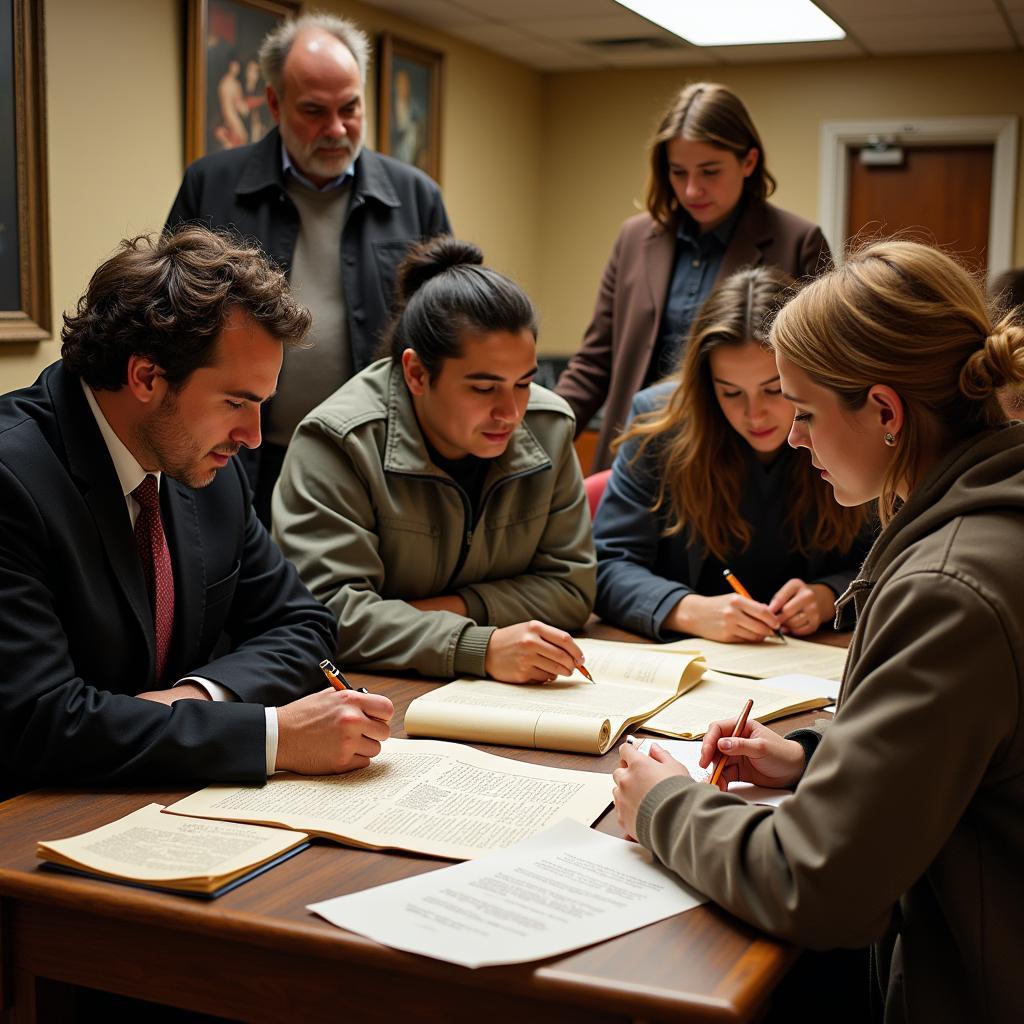“Remember the source when drinking water,” our ancestors taught us. History is a precious lesson, a compass for the present and the future. Lessons learned from revolutionary paths are the essence distilled from the blood and sweat of our forefathers, helping us to steadfastly build our nation. Similar to how to study history for university entrance exams, learning from the past is essential for success in the present and future.
Lessons From the Past, Light for the Future
The revolutionary path is full of thorns and challenges. Every step must be carefully considered and calculated. “A small mistake can lead to a large deviation,” lessons learned are the map that helps us avoid mistakes, shortening the path to success. For example, during the resistance war against the French, the lesson of national unity, relying on the strength of the people, helped us achieve the glorious Dien Bien Phu victory. Professor Nguyen Van An, in his book “Memories of Dien Bien,” emphasized the importance of “taking the people as the root.”
Analyzing Lessons Learned from Revolutionary Paths
Lessons learned from revolutionary paths are not merely about memorizing historical events. More importantly, we need to analyze and explain the causes of successes and failures to draw lessons for ourselves. This is similar to how to memorize history quickly where you need to understand the essence of events to remember them longer.
 Analyzing lessons learned from revolutionary paths
Analyzing lessons learned from revolutionary paths
For example, the application of the Doi Moi (Renovation) policy helped our country escape the economic crisis and enter a new period of development. However, alongside these achievements, we must also recognize the limitations, thereby adjusting and perfecting the socio-economic development path. According to Assoc. Prof. Dr. Tran Thi Bich, in the book “Doi Moi and Development,” “flexibility and creativity in applying the guidelines” are key factors for achieving success.
Applying Lessons to Practice
“Learning without practice is useless,” lessons learned from revolutionary paths are only truly meaningful when applied to real life. From building the economy and developing culture to protecting national sovereignty, all need to be based on the valuable lessons of our forefathers. To better understand how to learn probability and statistics theory, you can apply analytical and logical thinking similar to when studying history.
 Applying lessons learned from revolutionary paths to life
Applying lessons learned from revolutionary paths to life
For example, the spirit of self-reliance and daring to think and act of the previous generations is an inspiration for young people to start businesses and contribute to the country’s development. “It takes a long road to know a good horse,” Dr. Le Van Thanh, in his speech at the National Economics University, affirmed that “the revolutionary spirit is the key driving force for sustainable development.” A detailed example of how to use e-learning cards is the application of technology in education, which is also a way to apply lessons about innovation and development. For those interested in how to study power electronics, learning about the history of electronics development will also provide valuable lessons.
Conclusion
Lessons learned from revolutionary paths are valuable baggage for each of us on the path to building and protecting the Fatherland. Let’s cherish, learn, and apply these lessons to life, contributing our efforts to build a strong and prosperous Vietnam. Please leave a comment and share this article if you find it helpful. Explore more articles on the HOC LAM website to improve your knowledge. Contact Phone Number: 0372888889, or visit the address: 335 Nguyen Trai, Thanh Xuan, Hanoi. We have a 24/7 customer care team.
